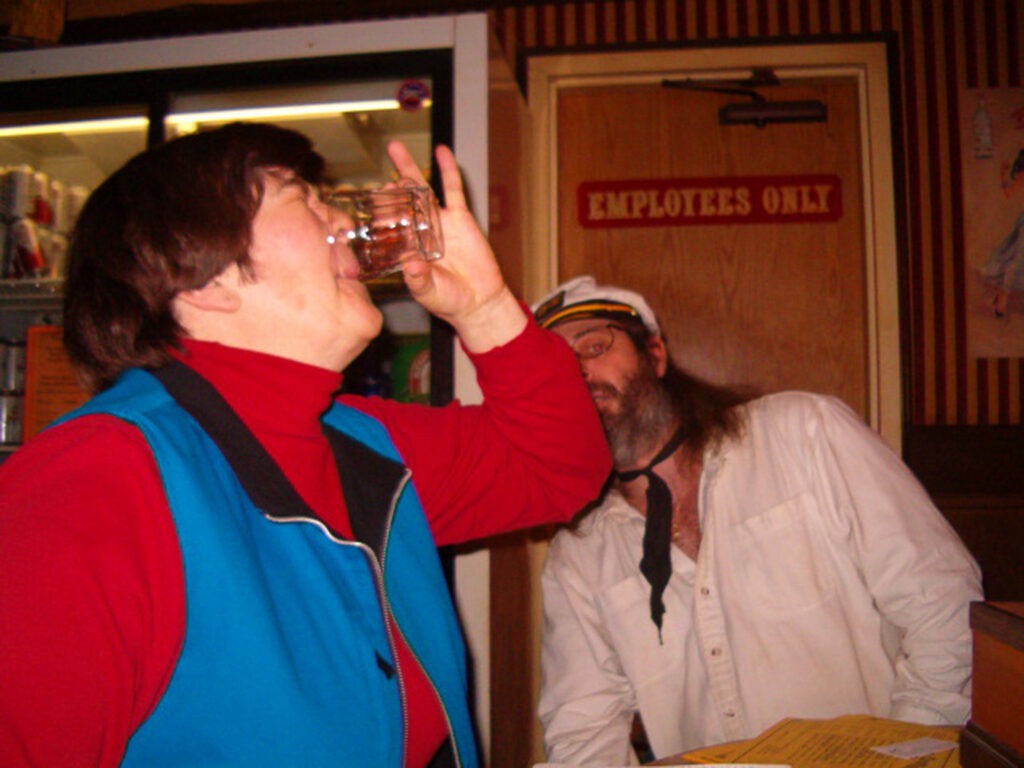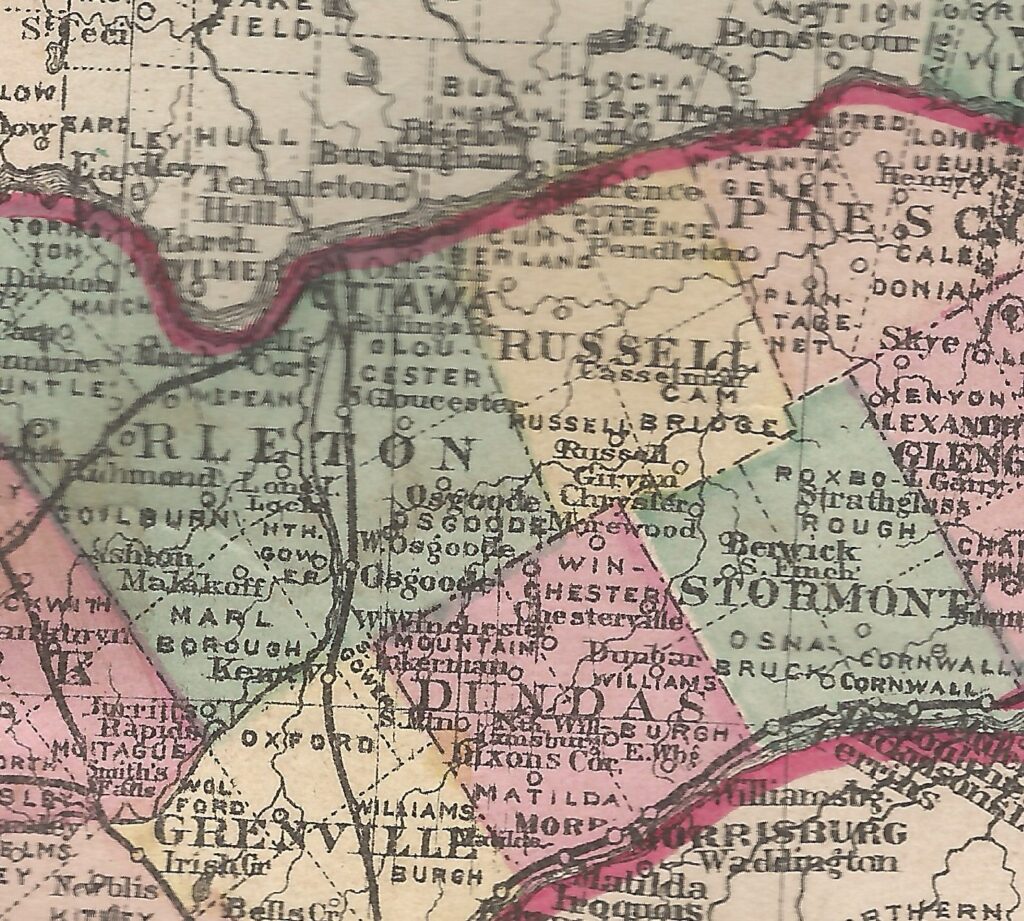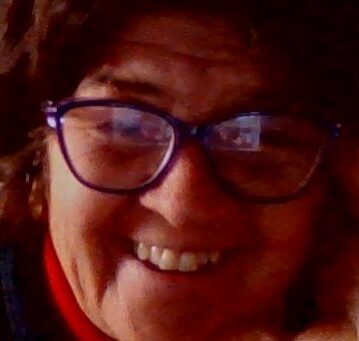This workshop is about something that I heartily wish someone had described to me before I began writing for a living: RESEARCH!

Researching the Sour Toe Cocktail in Dawson City, 2008.
My first book, now out of print and the publishing company has folded – or so I am told (and should I feel any guilt about that?) – was a collection of historic photos with a paragraph describing each image.
The book was Looking Back: Pictou County. The writing wasn’t Giller Prize material, but the research was over the top, gleaned from almost a kazillon sources.
I can say that because there are few, if any, who know how many sources would constitute a kazillion. I could be wrong about that statement, because I didn’t do the minimal research on kazillion. (That is, I didn’t Google it.)
In the beginning, I didn’t know enough to know that I didn’t know enough, and I stopped hunting for facts when I had enough information to make a caption for each photo. Thus, the names of the men on the cover are in the wrong order, and some other names in the book are just as confused. An awful thing to do to people.
A relative newcomer to this part of Nova Scotia, I had never visited all of the places, or met the historic families, or had any notion of the area’s history when I started working on the book. It’s enough to say that I learned, but never enough to be perfect.
By the time I began writing The Great Maritime Detective, published by Nimbus in 2009, I became so immersed in research that it took a back seat to the actual writing. I JUST HAD TO KNOW EVERYTHING!
If I wrote about the great Peachie Carroll calling his dogs, I yearned to know their names. If I wrote about a place he visited, I needed to see it. It became an obsession and, as it turned out, an unnecessary fixation. Most of it got left out of the book. But I saved the gleanings for someday – when I will include everything I learned in my personal rendition of the Great Canadian Novel – still in the revision phase after too many years. And still demanding research!
It’s taken so long to complete the manuscript that I often forget that, for instance, I already learned how to skin a wolf; the water temperature of the Yukon River in summer; whether one could catch a train in Antigonish in 1898; or if soft-serve ice cream was available in Nova Scotia in 1967. Small points, but the kind of mistake that might cause a reader to blurt “IMPOSSIBLE!”
One can’t have that.
Continuous research does have its advantages – just recently I discovered that a Black family lived in a remote-ish Cape Breton village from the late 1800s to the early 1900s. That fact changes the way one of my characters reacts to a particular situation, and I had to re-write a few pages to make the fiction feasible.
But, at some point, one has to stop searching and start writing – and that IS the point I will try to convey to an upcoming writing workshop at the Trenton, NS, branch of Pictou Antigonish Regional Library.
The workshop is called The Rabbit Holes of Research: March 23, 2024, 11 am – 1 pm.
It’s open to all, and it’s free, but you have to register. Call (902) 752-5181, or email trenton@parl.ns.ca

Part of an old map of the Clarence-Rockwell area, near Ottawa. I saved it “just in case” I need the information some day. Such is one of the “rabbit holes” of research.
